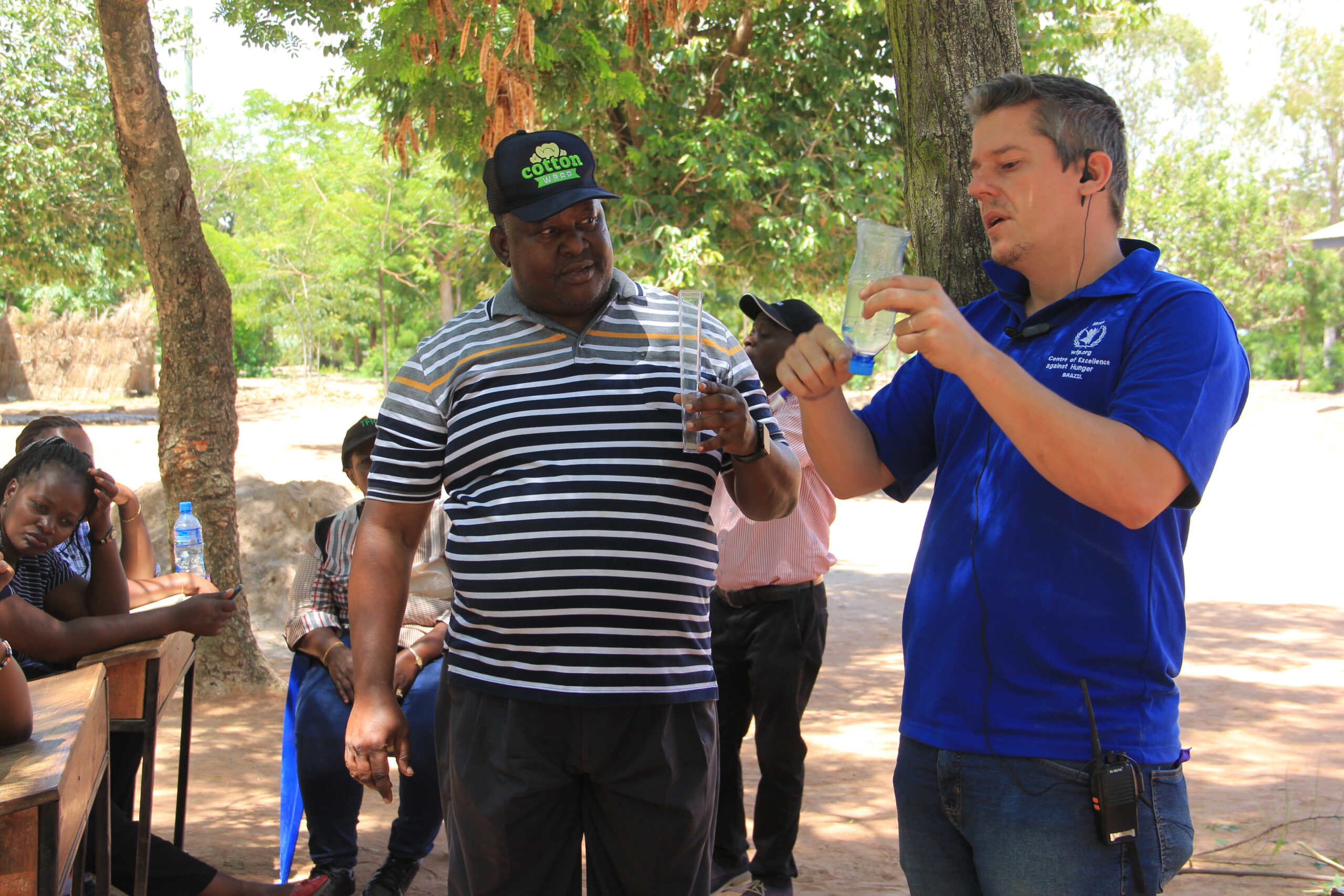 On World Humanitarian Day, 19 August, we celebrate those who dedicate their lives to alleviating suffering and building a better future for those in need. An inspiring example of this dedication is the story of Joélcio Carvalho, an agricultural engineer and head of the Partnerships area at the WFP Centre of Excellence Against Hunger in Brazil.
On World Humanitarian Day, 19 August, we celebrate those who dedicate their lives to alleviating suffering and building a better future for those in need. An inspiring example of this dedication is the story of Joélcio Carvalho, an agricultural engineer and head of the Partnerships area at the WFP Centre of Excellence Against Hunger in Brazil.
Joélcio Carvalho experienced a deeply moving moment during a recent mission in Tanzania. The scene unfolded when a local farmer, who had benefited from the training provided by Joélcio and his team, appeared with a sack full of maize and sweet potatoes. It was a symbolic gift but also a sign of transformation. The farmer, who had previously struggled to produce enough for his own family, was now in a position to share his abundance with others. “It’s satisfying to see that our work has contributed to transforming communities that previously didn’t produce enough even for self-consumption and are now producing abundantly, both for their families and for sale, thus improving the local economy,” Joélcio reflects with pride.
World Humanitarian Day is a time to highlight work like this and that of countless other volunteers, professionals, and crisis specialists who bring aid, food, medical care, shelter, water, protection, and more. These professionals bring hope to people in conflict zones and crisis areas.
Since he was 16, Joélcio has been dedicated to humanitarian work. He started as an intern at FAO even before graduating from the Federal University of Viçosa. Food production is a central part of Joélcio’s life story. As the child of a farmer from a smallholding background, he considers himself a product of public policies in this area. His motivation was natural, but over time, it was his sense of indignation that drove Joélcio into humanitarian work. “There is still much to be done,” he acknowledges.
His early entry into international cooperation allowed Joélcio to participate in field missions across various countries in Latin America and Africa. He recounts that during the closure mission in Tanzania, he and other Brazilian technicians had coordinated a workshop to teach local farmers how to make homemade water filters.
After the workshop, during a discussion with the farmers, Joélcio recounts that one of them stood up with a sack full of maize and sweet potatoes and requested the floor to say that he was there with this food, “because our Brazilian brothers taught me how to plant better, so I managed to produce more and I wanted to donate to you so you could have seeds and produce more, because it helped me and I think it will help you too.” Very touched, Joélcio said that at that moment he “broke down” because it made all that effort truly worthwhile.
For him, it is very satisfying to see this kind of result from a small change. “We showed him that instead of planting the potatoes vertically, if he planted them in a U-shape, like a hook, there would be many more roots and it would produce much more,” he explained. With this simple change, he increased his productivity tenfold, achieved abundance, and had a surplus for himself and for the community. “So this, this is priceless.”




